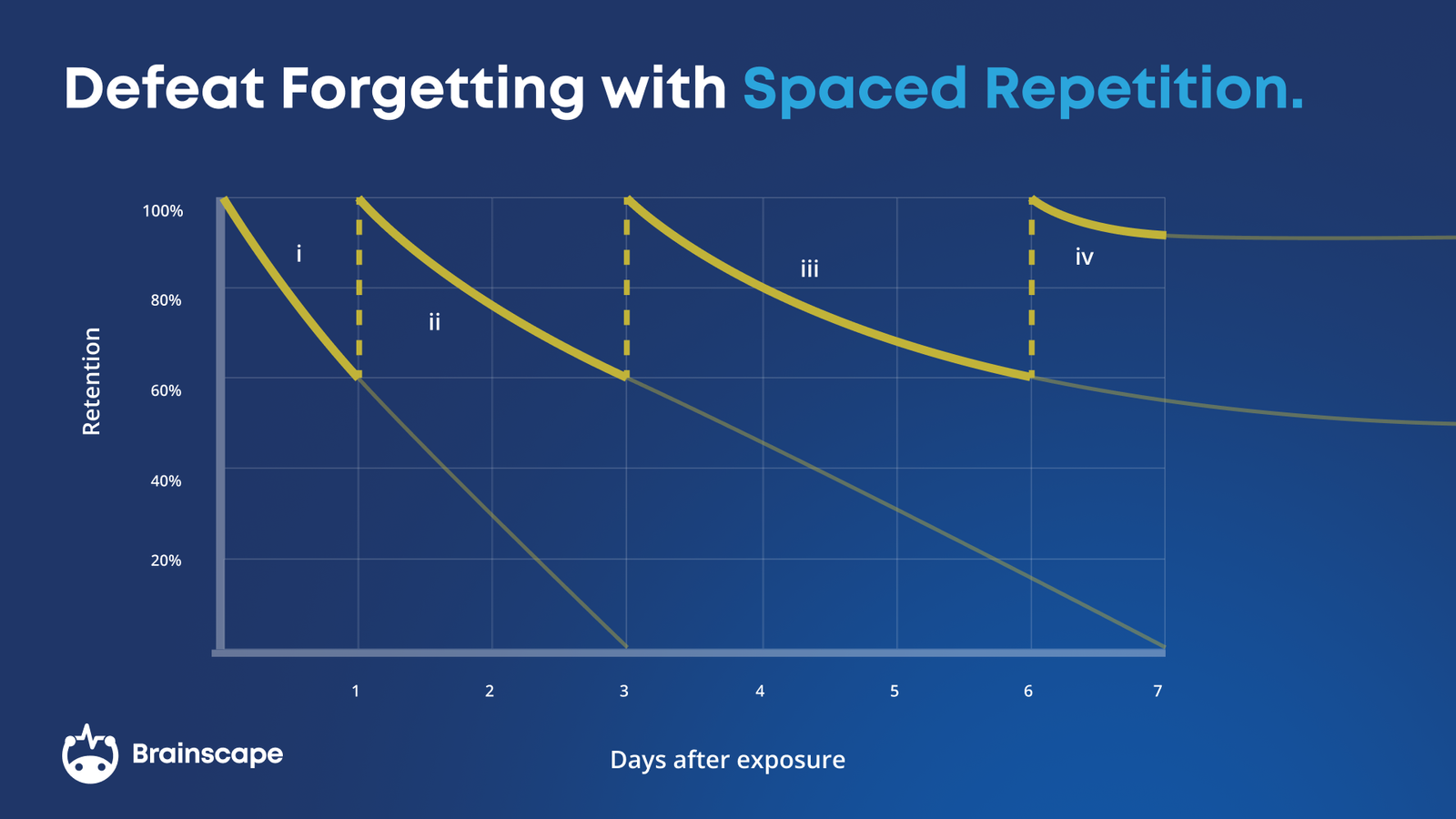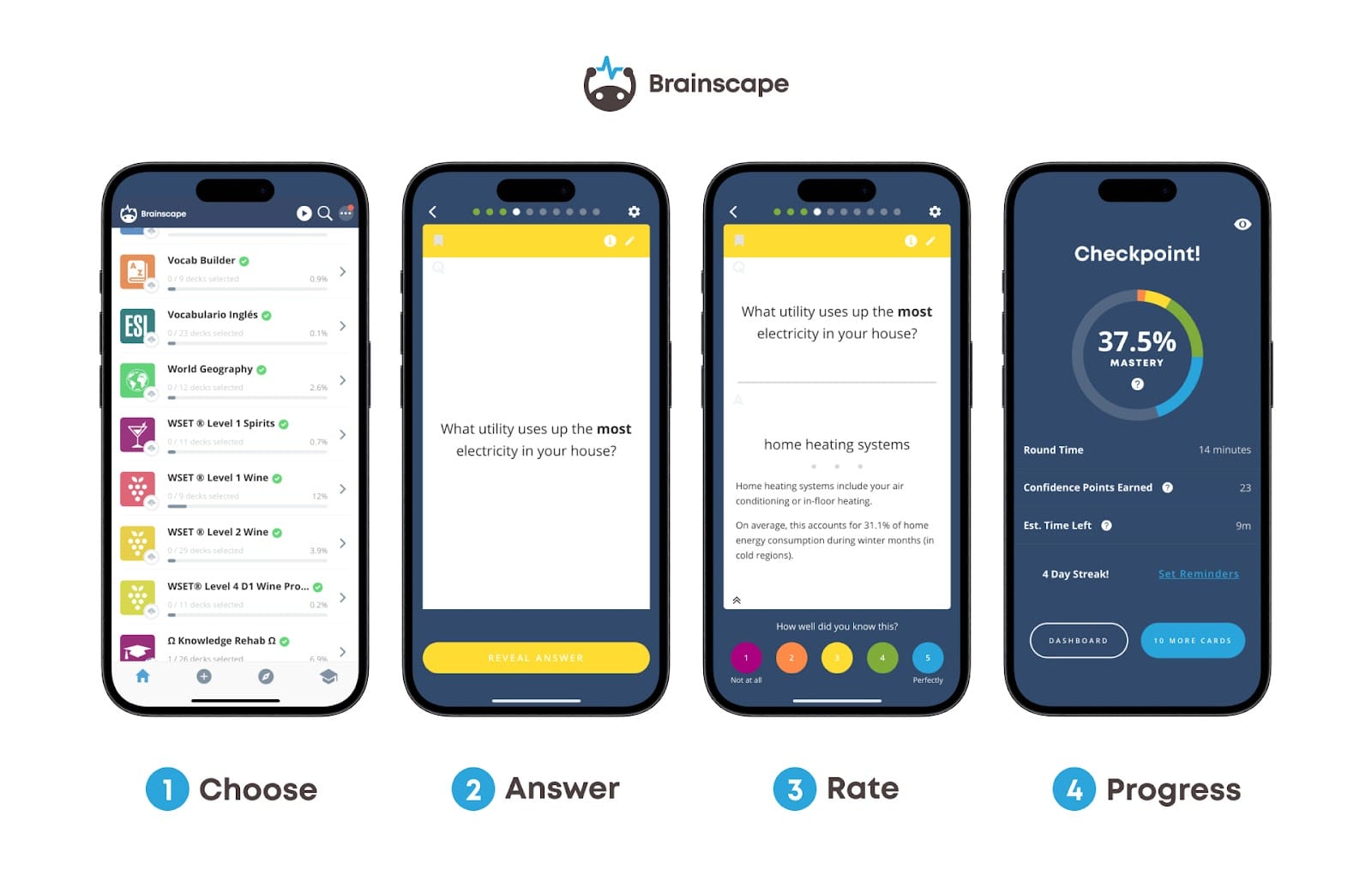With all the world's facts just a web search away, is memorization an outdated educational practice? Can we run the world on skill acquisition instead of knowledge?
TL;DR: No.
Here's our argument for memorization as a core part of education:
The Value of Rote Memorization
Having knowledge immediately at the tip of your tongue has tremendous social and professional value.
At a recent networking event, I casually asked a Nigerian entrepreneur how much of his business was conducted in English versus his native Yoruba. He immediately became more engaged in our conversation. The simple fact that I knew that Yoruba was spoken in Nigeria seemed to increase my social credibility and, therefore, our rapport.
The same goes for professional settings. Imagine you're a pharmaceutical salesperson talking to a doctor about a specific digestion drug. The doctor asks if it has any effect on the process of peristalsis. It won't look great if you have to pull out a medical dictionary before answering. Those facts need to be ingrained in your brain for immediate access.
It's true that we don't have to remember everything. You can be a perfectly good coder without remembering every single Python command, you can speak French fluently without remembering every word, and you can even be a pretty good lawyer without remembering every legal case in the history of the world.

But each of those jobs does require you to remember some things. You can't code effectively without remembering most commands, you can't speak French fluently if you have to look up every word, and to be a competent lawyer, you really do need to remember a lot of law.
Memorizing every fact isn't essential, but memorizing at least some facts is. Can you imagine how ineffective a school teacher would be if they couldn't remember their students' names?
Educators just need to determine what rote knowledge retention is necessary and focus their students' memorization efforts on facts with payoff.
Rote Memorization vs. Constructivist Learning
Some educational situations need more personalized learning beyond rote memorization. Most constructivist educators argue that real-life simulations, on-the-job training, and project-based learning are more effective for learning new concepts than rote memorization.
These forms of education can be very effective. However, no single cost-effective constructivist activity will guarantee that your students (or you) will be exposed to all the concepts you need—or that you will fully remember the facts that you are exposed to. For example:
- Medical residency can teach you a lot about the body but can't reliably teach full, comprehensive anatomy.
- Articling can teach law students a ton about how being a lawyer works, but it isn't designed to teach them all the law.
- Working at a vineyard can teach about how wines are grown and made, but it can't reliably teach all the concepts needed to become a sommelier.

Why Should Students Memorize Anything When they Can Just Ask ChatGPT?
Because knowing is not the same thing as looking up.
Large language models can surface information instantly, but they can’t replace the fluency, judgment, and problem-solving power that come from having knowledge stored in your own long-term memory.
When a concept is already in your head—deeply encoded and retrievable—you can use it to think critically, connect ideas, analyze arguments, and create new insights. Offloading everything to ChatGPT or any other LLM keeps you in “Google mode”: reactive, dependent, and shallow. Real learning requires the opposite: an internal knowledge base you can wield without stopping to search.
Secondly, cognitive science is very clear: working memory is tiny. If you constantly have to fetch background facts, definitions, formulas, vocabulary, or historical context from an external tool, your brain has no bandwidth left for higher-order thinking. Memorization isn’t about rote recall for its own sake, it’s the scaffolding that makes comprehension, mastery, and creativity possible.
When key knowledge is automated in your memory, you learn faster, you solve harder problems, and you avoid the cognitive overload that tanks performance.
Finally, tools like ChatGPT are most powerful when you already understand the material. Without foundational knowledge, you can’t evaluate whether an AI-generated answer is correct, misleading, oversimplified, or confidently wrong!
Memorization gives you the internal compass you need to interrogate AI, not blindly trust it. In other words: the more you know, the more useful ChatGPT becomes. Memorization and AI aren’t competitors: they’re partners.
But memorization must come first. Here's how to do it right...
How to Do Rote Memorization Effectively
Like it or not, memorizing facts is essential.
Luckily for you, we're obsessed with the research around learning and memory. Here's what you need to do if you actually want to acquire a full range of knowledge about a given topic.
- Study deliberately. Deliberate practice is still the best way to master something—including information.
- Use active recall. This means that rather than doing matching, multiple choice, or re-reading exercises, you should instead perform learning activities where you need to actively reach into your memory to find the information. This can include flashcards or testing yourself.
- Use spaced repetition. You need to space the learning out, but not space it out so far that you forget it.

Brainscape's web and mobile flashcard app is designed using these principles. It's the most effective app out there to quickly learn—and remember—large amounts of information. It offers a personalized learning experience that optimizes student performance. You or your students can use Brainscape to remember the facts, leaving you free to do more collaborative and constructivist activities in class.

A Final Word: Yes, We Still Need Memorization
In a world where Google is always just a click away, it’s tempting to assume we no longer need to memorize anything. But as we’ve explored, rote memorization still plays a vital role in real-world communication, learning, and performance.
Whether you're trying to impress at a networking event, deliver facts confidently in a high-stakes professional setting, or simply avoid blanking on your students' names, there’s tremendous value in having knowledge instantly accessible in your brain.
The key is to focus your memorization efforts where they matter—and to use study tools that make the process faster and more efficient. That’s where Brainscape comes in.
With its adaptive flashcards powered by active recall and spaced repetition, Brainscape helps you lock in the essential facts, so you can spend more time applying knowledge creatively. Rote learning isn’t outdated—it’s just evolved. And we’re here to make it work for you.
Additional Reading
- Do Mnemonics & Other Memorization Techniques Really Work?
- Does Reading Out Loud Cause You to Remember Things Better?
- Do "Drill and Practice" Instructional Strategies Work in Education in 2025?
References
Oxford Learning. (2017, March 23). Rote Learning vs. Meaningful Learning. https://www.oxfordlearning.com/difference-rote-learning-meaningful-learning/
Simply Psychology. (2024, February 1). Constructivism Learning Theory & Philosophy of Education. https://www.simplypsychology.org/constructivism.html#:~:text=Constructivism%20is%20'an%20approach%20to,256).
UNC-Chapel Hill Learning Center. (2024, February 19). Memorization Strategies – Learning Center. Learning Center. https://learningcenter.unc.edu/tips-and-tools/enhancing-your-memory/
Xu, J., Wu, A., Filip, C., Patel, Z., Bernstein, S. R., Tanveer, R., Syed, H., & Kotroczo, T. (2024). Active recall strategies associated with academic achievement in young adults: A systematic review. Journal of Affective Disorders, 354, 191–198. https://doi.org/10.1016/j.jad.2024.03.010
